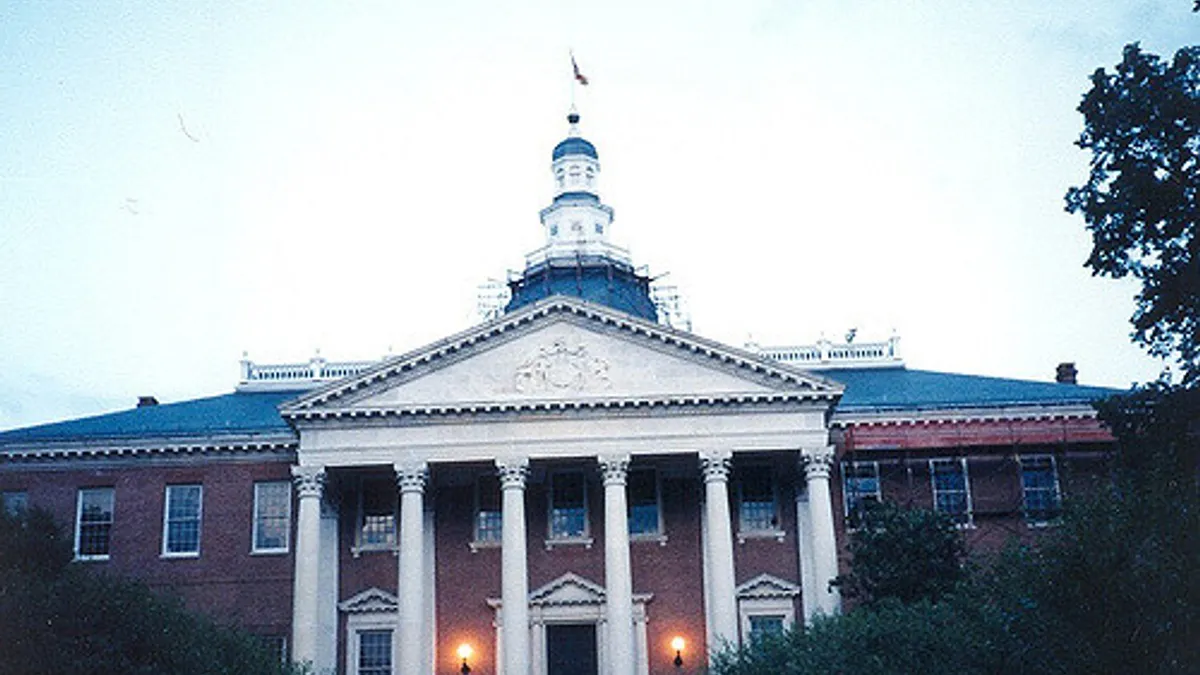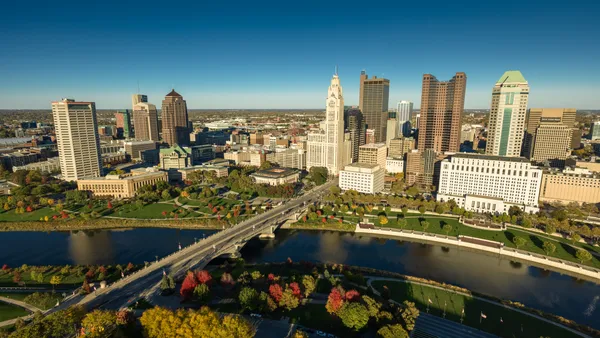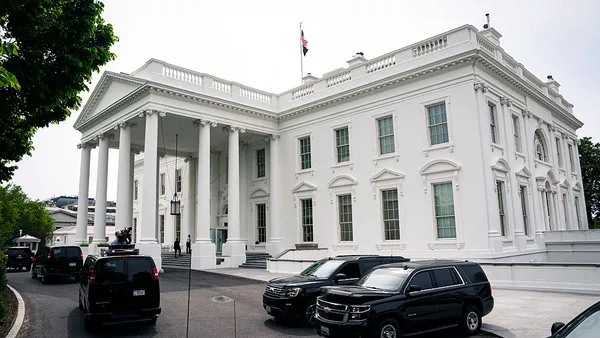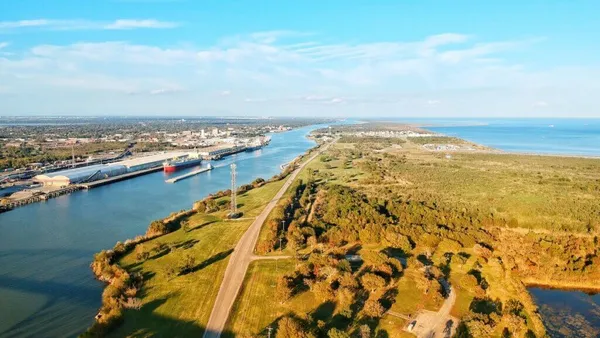UPDATE: The Maryland Senate voted 29-17 Friday to override Gov. Larry Hogan's veto of the bill requiring the ranking of state transportation projects. The vote came one day after the the state House also voted to override the veto, allowing the measure to become law.
Before lawmakers voted on the bill, Republicans reiterated their claims that it will unfairly prioritize funds for certain projects and regions, and that it will raise questions about the status of projects that have already received approval. On the other hand, Democrats said the measure will create a more efficient and effective way to choose state projects, according to the Baltimore Sun.
Dive Brief:
- Maryland Gov. Larry Hogan vetoed a bill on April 1 that would require $15.7 billion of planned transportation projects to be ranked by nine criteria before given the go-ahead by state administrators, according to The Baltimore Sun.
- Proponents of the bill say it allows for better transparency into potential projects, but critics claim that it is an attempt to chip away at the governor’s authority in deciding which projects should get permission to proceed.
- In anticipation of Hogan’s veto, state Democrats sped up its presentation to the governor so that they would have enough time for an override before the General Assembly’s session ends on April 11.
Dive Insight:
As part of a letter accompanying the veto, Hogan called the scoring plan "the worst kind of policy" and said it would make it harder for "families and small businesses" to relocate or stay in the state, the Sun reported. Hogan wrote in his letter that passage of such a bill "has the potential to once again put Maryland roads and highways on a path of neglect and underinvestment. I would be defaulting on my vow to Marylanders if I did not make every effort to resist passage of this bill."
The system, according to The Sun, would allow the governor’s administration to selectively weigh each of the nine criteria in its scoring process but would not obligate the governor to select only the highest-scoring projects for official approval. However, it would require the governor’s office to explain to the public why a lower-scoring project was chosen.
Also in the letter sent to lawmakers with the veto, the governor wrote that the bill’s language is too ambiguous and, for example, would give the same weight to safety as it does to whether a project would increase access to mass transit. But proponents of the bill discount that argument and said the governor would set the importance of each scoring category.
The biggest transportation story in Maryland right now is the Purple Line light-rail expansion into the Bethesda suburbs. A recent legislative analysis of the costs found that previously unaccounted for expenses could add $650 million to the project — one of the largest public-private partnerships (P3s) in the country and only the second U.S. P3 to include private financing. Fluor-led Purple Line JV Partners will design, build, operate and maintain the $5.6 billion project on a 36-year timeline, which breaks down to six years for construction and 30 years for maintenance.












